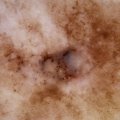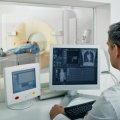
A University of Queensland scientist is part of an international team awarded $US1.3 million to help identify how fat deposits in humans can be used to attack bacteria.
UQ Institute for Molecular Bioscience scientist Professor Robert Parton is one of only two Australian-based researchers to get 2015 Human Frontier Science Program funding.
Grants have been awarded to multidisciplinary research teams for innovative projects geared towards solving problems in the life sciences.
Professor Parton said the funding would support the team’s work towards discovering how lipid droplets could be used to fight bacteria.
“Lipid droplets, which are structures within our cells that store lipids (fat), serve a greater purpose than mere fat deposits,” he said.
“Past research from my colleagues has revealed lipid droplets have antibacterial activity.
“This means as well as being an energy store, lipid droplets actually have a protective mechanism against bacteria,” Professor Parton said.
This immune mechanism is yet to be explored and researchers aim to uncover exactly how the lipid droplets protect cells against invasion.
The international team brings together expertise in biophysics, microbiology and molecular cell biology.
Researchers will look at how lipid droplets interact with bacteria within the cell and how they ward off microbes.
“This research has the potential to radically alter our understanding of a cell’s response to infection and could change our core understanding of the biology of lipid droplets,” Professor Parton said.
The research team’s application was ranked third among 21 program grants to share the $US35 million 2015 Human Frontier Science Program funding.
The collaboration includes researchers from the University of California, Irvine; Instituto Oswaldo Cruz, Rio de Janeiro; and the University of Barcelona.
Contact: Kate Sullivan, IMB Communications, 07 3346 2155, k.sullivan4@imb.uq.edu.au
.jpg)









